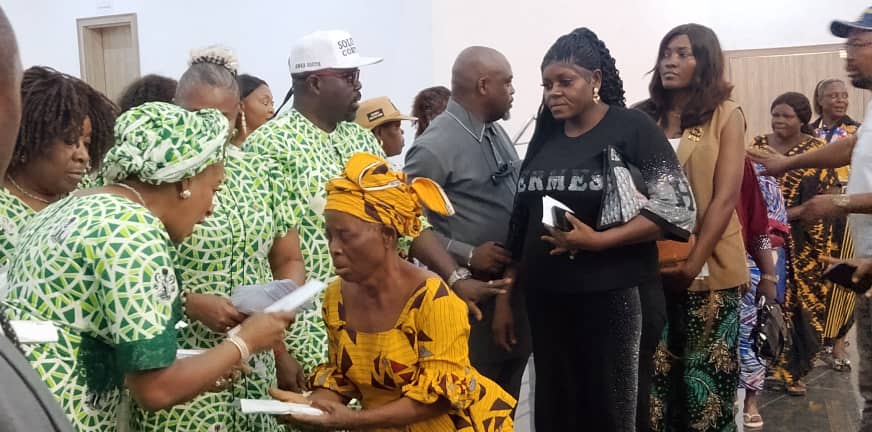Nigerian Lawyer Accuses Kenya of Conspiracy’s in Nnamdi Kanu’s Alleges Abduction

An Abuja-based lawyer, Christopher Chidera, has accused the Kenyan government of complicity in the Federal Government of Nigeria’s alleged abduction and rendition of Biafra agitator Nnamdi Kanu in 2021.
The human rights activist claimed that Kenya failed in its duty to protect Kanu and allowed his unlawful abduction and torture as the leader of the proscribed Indigenous People of Biafra (IPOB).
In a statement released to journalists in Abuja on Monday, Chidera accused Kenya of disregarding its Constitution, the Extradition Act, and international treaty obligations under the International Covenant on Civil and Political Rights (ICCPR), the Mutual Assistance Within the Commonwealth Act, and the London Scheme on Extradition within the Commonwealth.
The statement, titled How the Government of Kenya Failed in Their Duty to Protect Nnamdi Kanu, asserts that the incident not only violated Kanu’s rights but also tarnished Kenya’s reputation as a nation that upholds the rule of law.
Allegations Against Kenya
“The case of Nnamdi Kanu highlights serious concerns about the Kenyan government’s involvement in his abduction, torture, and illegal rendition to Nigeria in June 2021,” the statement reads.
Chidera detailed the events, alleging that Kanu, a dual citizen of the United Kingdom and Nigeria, entered Kenya on a UK passport and was abducted on June 19, 2021, at Jomo Kenyatta International Airport in Nairobi while meeting a friend. Armed individuals, believed to be Kenyan and Nigerian security officials, seized him without an enforceable warrant or judicial order.
According to Chidera, Kanu was held in a secret location near the airport for eight days, where he endured inhumane treatment. He was reportedly chained to the floor, beaten, denied access to sanitation and medication, and tortured to the point of unconsciousness.
Legal and Constitutional Violations
Chidera asserted that Kenya’s actions contravened its own legal framework.
The Constitution of Kenya (2010): Article 29 guarantees freedom and security, prohibiting arbitrary detention, torture, or inhuman treatment, all of which Kanu allegedly suffered.
The Kenyan Extradition (Commonwealth Countries) Act (1968): This law requires formal extradition proceedings, including the right to contest extradition in court. No such process occurred, and Kenya has denied any extradition proceedings took place.
International Law: Kenya is a signatory to the ICCPR, which prohibits torture (Article 7) and arbitrary detention (Article 9). Additionally, the London Scheme for Extradition within the Commonwealth mandates legal procedures that were not followed.
The Convention Against Torture (1984): This treaty prohibits transferring individuals to states where they may face torture. Given Kanu’s previous detention in Nigeria (2015–2017) and reports of post-rendition mistreatment, Chidera argues that Kenya ignored this obligation.
Illegal Rendition and Cover-up Allegations
On June 27, 2021, Kanu was allegedly handed over to Nigerian officials at the airport and flown to Abuja on a private jet, bypassing immigration protocols and legal extradition processes.
Chidera noted that Kenya’s Extradition Act (Section 6[3]) requires judicial oversight and adherence to the “Doctrine of Specialty,” meaning an extradited person can only be prosecuted for specified offenses. Since no formal request was processed, Kanu’s transfer was illegal.
The London Scheme for Extradition within the Commonwealth also mandates formal requests and judicial hearings, particularly for political offenses. Chidera argued that Kanu’s advocacy for Biafra could qualify as a political offense, further invalidating any claims of legal extradition.
Despite mounting allegations, the Kenyan government has denied involvement, with its High Commissioner to Nigeria stating there are no records of Kanu’s detention or extradition. However, Chidera pointed out that passport stamps and Kanu’s detailed account contradict these denials.
Diplomatic and Legal Implications
Chidera emphasized that Kenya’s alleged actions undermine its status as a law-abiding nation within the Commonwealth and the international communities.
READ ALSO: Anambra Govt Provides Free Hydrocelectomy Surgery for 165 Patients
Education: Key to National Development – Anambra APC Guber Aspirant
He urged accountability for officials involved in what he described as a “deliberate circumvention of due process, likely for political or diplomatic gain.”
“This incident not only violated Kanu’s rights but also severely damaged Kenya’s credibility as a rule-of-law state,” he added.





